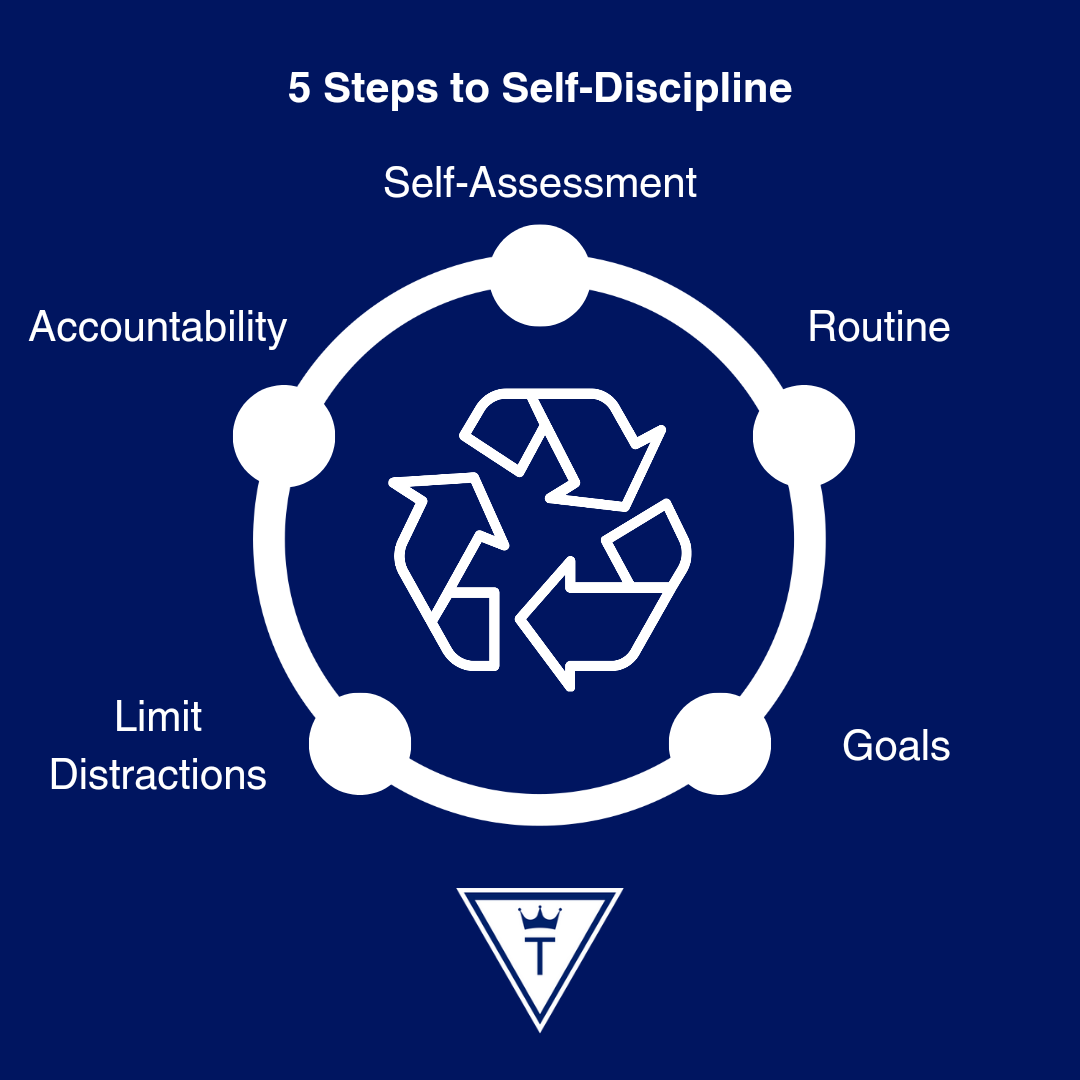The discipline of self-discipline
With self-discipline most anything is possible - Theodore Roosevelt, President, USA
Continuing on from our "Self-awareness" issue, the next foundation stone of leadership is self-discipline. Self-discipline is an essential trait for any leader. History proves time after time self-discipline marks out the truly great leaders.
Self-discipline is the ability to control your impulses, emotions, and behaviours to achieve your goals. It's not just about leading others; it's about leading yourself.
Why self-discipline matters
A self-disciplined leader is consistent, reliable, and trustworthy. By setting a positive example, leaders encourage a culture where accountability and responsibility flourish and are better equipped to tackle challenges, maintain focus, and drive towards their personal and organisational goals.
Odysseus and the Sirens
Image generated by DALL-E, OpenAI.
During his journey home from the Trojan War, Odysseus, the king of Ithaca, was warned about the enchanting Sirens. The Sirens were creatures whose beautiful songs lured sailors to their doom, causing them to crash their ships on the rocks.
Being a wise and cunning leader, Odysseus knew he had to devise a plan to safeguard himself and his crew from the Sirens' tempting melodies. He ordered his men to fill their ears with beeswax so they would not hear the Sirens' song. However, he wanted to hear the song himself without succumbing to its spell.
He instructed his crew to tie him tightly to the mast of the ship and commanded them not to release him, no matter how much he begged and pleaded. As they sailed past the Sirens, Odysseus was captivated by their song and, despite his efforts, pleaded to be released. His crew, following his orders, kept him bound and sailed safely past the danger.
Self-discipline requires taking precautions against one's weaknesses and temptations revealed when becoming more self-aware. Odysseus's foresight and ability to discipline himself, even against his own future desires, ensured the safety and success of his journey.
The story is a powerful metaphor for leadership. It emphasises the importance of recognising one's vulnerabilities and proactively creating structures and systems to maintain discipline and focus, even in the face of temptation or hardship.
5 Steps to Self-Discipline
Self-Assessment: Understand your strengths and areas for growth. This self-awareness lays the foundation for personal development. See our previous issue, "Know Thyself - Self-awareness" for more information.
Establish a Routine: Build daily habits that set a productive and positive tone, embedding discipline into your life.
Set Specific Goals: Break down objectives into manageable tasks. Use the SMART criteria to ensure clarity and achievability.
Limit Distractions: Create an environment conducive to focus. Recognise and eliminate potential disruptions and distractions.
Practice Accountability: Share your goals with trusted individuals who can support and check in on your progress.
Self-discipline isn't a standalone, one-time kind of thing you do and then forget about. It’s a continuous cycle; a common theme in leadership. As each goal and milestone is reached you return to self-assessment and start the cycle over again until it becomes second nature.
Recommended Resources
"The Power of Habit" by Charles Duhigg, which unpacks the science of habit formation
"Discipline Equals Freedom" by Jocko Willink, which offers a raw look into the stringent world of Navy SEAL discipline.
"Atomic Habits" by James Clear emphasises the power of small, consistent changes in habits to achieve remarkable results over time.
"Emotional Intelligence" by Daniel Goleman describes the critical role of emotional awareness and regulation in personal and professional success, surpassing traditional measures like IQ.
Continuous attention, reflection, and adaptation
What do all great leaders have in common? They are aware of themselves at all times and put in place systems, methods and behaviours to keep them heading towards their goals.
Self-discipline requires continuous attention, reflection, and adaptation. As you continue to strengthen this skill, you'll find it's not just your leadership abilities that benefit, but every aspect of your life.
Embrace the challenges, celebrate the victories, and never stop learning and growing.
Next time…
If you've enjoyed this issue please hit subscribe and join our journey. Our next issue will look at the last foundation stone of leadership - self-realisation.
Ta very much for your support
JP
Founder, theTeasdaleway










